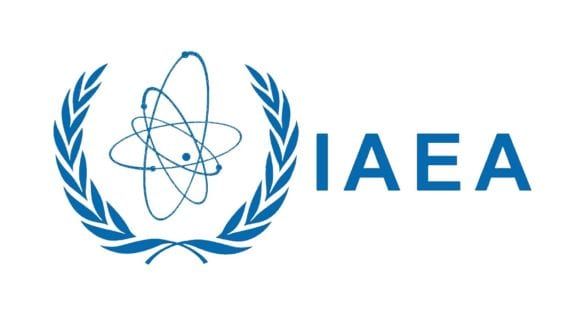iranintl – Iran now has sufficient quantities of highly enriched uranium to build several atomic warheads, the head of the UN nuclear watchdog has once again warned.
Speaking to Bloomberg on the sidelines of the World Economic Forum in Davos, Rafael Grossi reiterated his concerns that no technical obstacle remains between Iran and a nuclear bomb, implying that the regime can make them now if it wanted to.
This comes amid Iran’s unprecedented belligerence in launching airstrikes against three of its neighbors in a matter of 24 hours: Syria, Iraq, and nuclear power Pakistan –which was the only one of the three countries to retaliate almost immediately.
Both countries were quick to stress that they respect the other’s sovereignty and that their attacks have been meant to hit “terrorist hideouts” only. But the mutual reassurances do little to allay concerns of others in the region who fear that even a slight miscalculation could put the two Islamic Republics on a collision course.
Pakistan is the only nuclear power in West Asia, but Iran, according to IAEA director general Grossi, is very close to becoming one, and in terms of capability, is “already there.”
This may very well explain the regime’s increasingly aggressive rhetoric and behavior. For many years, a group of ultra-hardliners in Iran have been pushing for a ‘North Korean model’, believing that a nuclear power (or one perceived to be one) would be impervious to foreign pressure.
And some analysts believe those ultra-hardliners have been proven right by the Biden administration’s cautious, almost deferential, approach to Iran.
“Iran sprinting for nuclear weapons this year would be the capstone of the Biden-Sullivan foreign policy doctrine,” Andrea Stricker of the Foundation for Defending Democracies posted on X, “letting our adversaries run the globe and pushing back only when it’s too late or the situation becomes untenable.”
President Biden admitted Thursday that the recent wave of airstrikes against Iran-backed Houthis in Yemen has not been effective in stopping the attacks on vessels in the Red Sea.
“Are they stopping the Houthis, no. Are they going to continue, yes,” Biden told reporters, raising questions about his administration’s current strategy, but also what may come next.
“The Biden Admin is so wedded to their appeasement and de-escalation strategy that they’re actually inviting escalation from the Houthis and Iran,” Congressman Mike Waltz said in an interview with Fox News Thursday. “Deterrence has completely fallen apart… and we see every one of our adversaries on the march because of it and my fear between now and November is that they’re only going to accelerate because they see it as a moment of opportunity.”
The 2024 US Presidential elections will be held in November and the crisis in the Middle East, especially the role of Iran, which is behind most attacks on American interests in the region, is almost certain to feature heavily in the campaign.
Iran has an election of its own on March 1st, simultaneously choosing representatives for the parliament and the Assembly of Experts –on paper, responsible for selecting the next Supreme Leader.
There are many signs that this March’s election in Iran would set a record for the lowest turnout in the history of the Islamic Republic, with anger and political apathy now pervading the society.
The regime is once more doing all it can to lighten the people’s mood and lure them to the polling station –amid general rejection of the political system and clerical rule. The belligerence towards the outside world can be seen in the same light: as an attempt to raise a specter of war that would rally people around the flag. It is a risky bet, though, especially when so many of those people have come to hate the very flag.
 Shabtabnews In this dark night, I have lost my way – Arise from a corner, oh you the star of guidance.
Shabtabnews In this dark night, I have lost my way – Arise from a corner, oh you the star of guidance.



